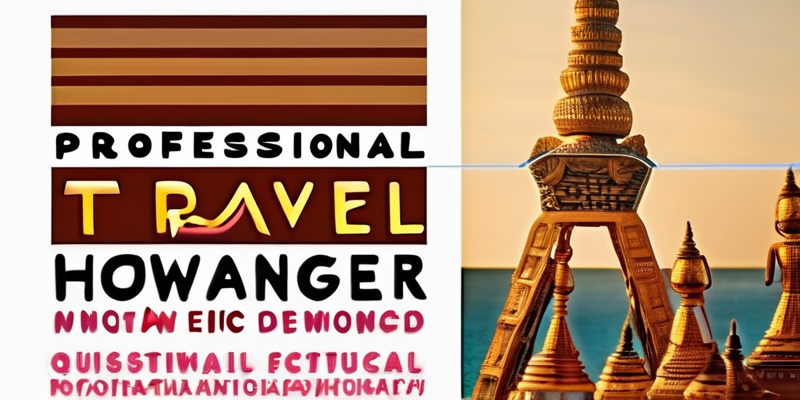The rhythmic pounding of drums echoing through ancient streets. The kaleidoscope of colors as dancers twirl in traditional garments. The intoxicating aromas of festival foods prepared according to centuries-old recipes. There's something magical about experiencing a cultural celebration in its authentic setting that transcends ordinary tourism. Festival tourism—the practice of planning travel specifically around cultural celebrations—offers a gateway to understanding societies in their most expressive moments. Unlike standard sightseeing, festival participation invites travelers to become temporary participants in living traditions rather than mere observers of static attractions. This immersive approach to travel not only creates more meaningful connections with destinations but often reveals the soul of a culture in ways museum visits and landmark tours simply cannot.
Why Festival Tourism Delivers Unparalleled Cultural Experiences
Marrakech:
Cultural festivals represent communities at their most authentic and vibrant. During these celebrations, local customs, beliefs, artistic expressions, and culinary traditions take center stage, offering visitors unfiltered insights into the heart of a culture. Whether it's witnessing the spiritual devotion during India's Kumbh Mela, experiencing the unbridled joy of Brazil's Carnival, or observing the ancestral reverence during Mexico's Día de los Muertos, festivals provide contextual understanding that guidebooks simply cannot convey.
Fez:
Beyond cultural education, festival tourism creates natural opportunities for meaningful interactions with locals. When communities celebrate, social barriers often relax, creating organic spaces for connection. These interactions frequently become travelers' most cherished memories—sharing a traditional meal with a family during Thailand's Songkran, learning dance steps from locals during Spain's La Tomatina, or receiving blessings during Bali's Galungan celebration. Such experiences foster cross-cultural understanding in increasingly divided times.
Chefchaouen:
Finally, festival tourism distributes economic benefits more directly to communities and supports cultural preservation. Many traditional celebrations require substantial resources to maintain, and tourism can provide crucial financial support. When travelers specifically visit for festivals, their spending typically benefits local artisans, performers, food vendors, and small accommodation providers rather than exclusively flowing to international hotel chains and tourism conglomerates.
Strategic Planning: Timing, Research and Logistics
To truly experience Morocco, dive into its rich culture. Here are some highlights:
Culinary Classes:
Successful festival tourism begins with strategic timing. Many major celebrations follow either religious calendars (like Easter processions in Seville or Diwali in India) or agricultural cycles (like harvest festivals), meaning their dates may shift annually. Begin planning 9-12 months ahead for major international festivals, researching precise dates and securing accommodations early—prices often double or triple during festival periods, and availability becomes scarce. For less commercialized celebrations, 4-6 months of advance planning is typically sufficient.
Music Festivals:
Thorough research separates authentic cultural immersion from tourist traps. Beyond dates and locations, understand the festival's cultural significance, appropriate behavior, and dress codes. Resources like academic cultural journals, destination-specific forums, and conversations with cultural organizations or diaspora communities in your home country provide deeper insights than general travel guides. For religious festivals especially, learning basic etiquette prevents unintentional disrespect.
Logistical preparation for festival tourism differs from standard travel planning. Consider accommodation proximity to events (balancing convenience with noise levels), transportation options during crowded periods, and whether you'll need special tickets or permits. Create flexible itineraries that account for festival schedules while building in recovery time—many celebrations involve late nights, early mornings, or physically demanding activities. Finally, prepare for festival-specific challenges:
Will ATMs be accessible? How will cellular networks perform with crowds? Are certain areas restricted to locals or worshippers?
Immersive Participation vs. Respectful Observation
Plan your visit around one of Morocco's vibrant festivals to experience the culture at its best:
Marrakech International Film Festival:
The question of when to participate versus when to respectfully observe represents one of festival tourism's most nuanced challenges. Some celebrations explicitly welcome visitor participation—Rio's Carnival, Thailand's Songkran water festival, and India's Holi color festival actively incorporate tourists. Others, particularly those with deep religious significance like certain indigenous ceremonies or temple rituals, may restrict participation to community members or adherents. Research whether festivals have specific tourist-friendly components or areas where visitors are encouraged to engage.
Fez Festival of World Sacred Music:
When participation is appropriate, prepare to engage meaningfully rather than superficially. Learning basic phrases in the local language, understanding the significance of ritual elements, and perhaps taking a preparatory workshop (like learning basic samba steps before Carnival) demonstrates respect while enhancing your experience. Dress appropriately—this might mean modest attire for religious festivals or embracing traditional garments when culturally appropriate and invited.
Gnaoua World Music Festival:
Responsible festival tourism always prioritizes respect over perfect photographs. Before photographing ceremonies, individuals, or sacred objects, learn local attitudes toward photography. Some celebrations prohibit photos entirely, while others designate specific photography-friendly areas. When in doubt, ask permission through words or gestures. Focus on experiencing the moment rather than documenting it—not only does this show respect, but it also leads to more meaningful personal memories.
Beyond the Main Event: Creating Comprehensive Cultural Experiences
Traveling sustainably ensures that Morocco's beauty is preserved for future generations. Here are some tips:
- The most rewarding festival tourism extends beyond the headline events to explore cultural context. Arrive several days before major celebrations to witness preparations—artisans creating festival decorations, rehearsals for performances, or food preparations. These pre-festival activities often provide more intimate cultural exchanges and learning opportunities than the main events themselves. Similarly, lingering after festivals concludes offers insights into how communities transition back to everyday life, often with specific closing rituals or reflective practices.
- Complement festival attendance with related cultural experiences that deepen understanding. If attending a festival celebrating a particular deity, visit associated temples or sacred sites. Before experiencing a harvest celebration, tour local agricultural areas or food producers. Before a music festival, arrange lessons in traditional instruments or dance forms. These complementary activities provide context that enriches the festival experience itself.
- Consider engaging local cultural guides specifically for festival periods. Unlike general tour guides, cultural specialists can explain symbolic elements, translate interactions, and provide access to aspects of celebrations tourists might otherwise miss. Universities, cultural institutes, and community organizations often connect travelers with knowledgeable locals who can transform surface-level observation into profound cultural understanding. While this service represents an additional expense, the depth it adds to the experience proves invaluable.
Festival tourism, when approached with preparation, cultural sensitivity, and genuine curiosity, offers a profound alternative to conventional sightseeing. These vibrant celebrations provide windows into the living heart of cultures—their values, histories, artistic expressions, and community bonds. By timing our travels to coincide with these meaningful moments, we transform from passive observers of destinations to active participants in cultural traditions. The memories created—of shared dances, ritual observances, communal meals, and spontaneous connections—often become the stories we tell for decades after returning home. As the world becomes increasingly homogenized, these authentic cultural celebrations remind us of humanity's beautiful diversity while revealing the universal emotions that connect us across geographic and cultural boundaries. The festival traveler returns home not just with photographs and souvenirs, but with expanded perspectives and deeper understanding of our shared human experience.

